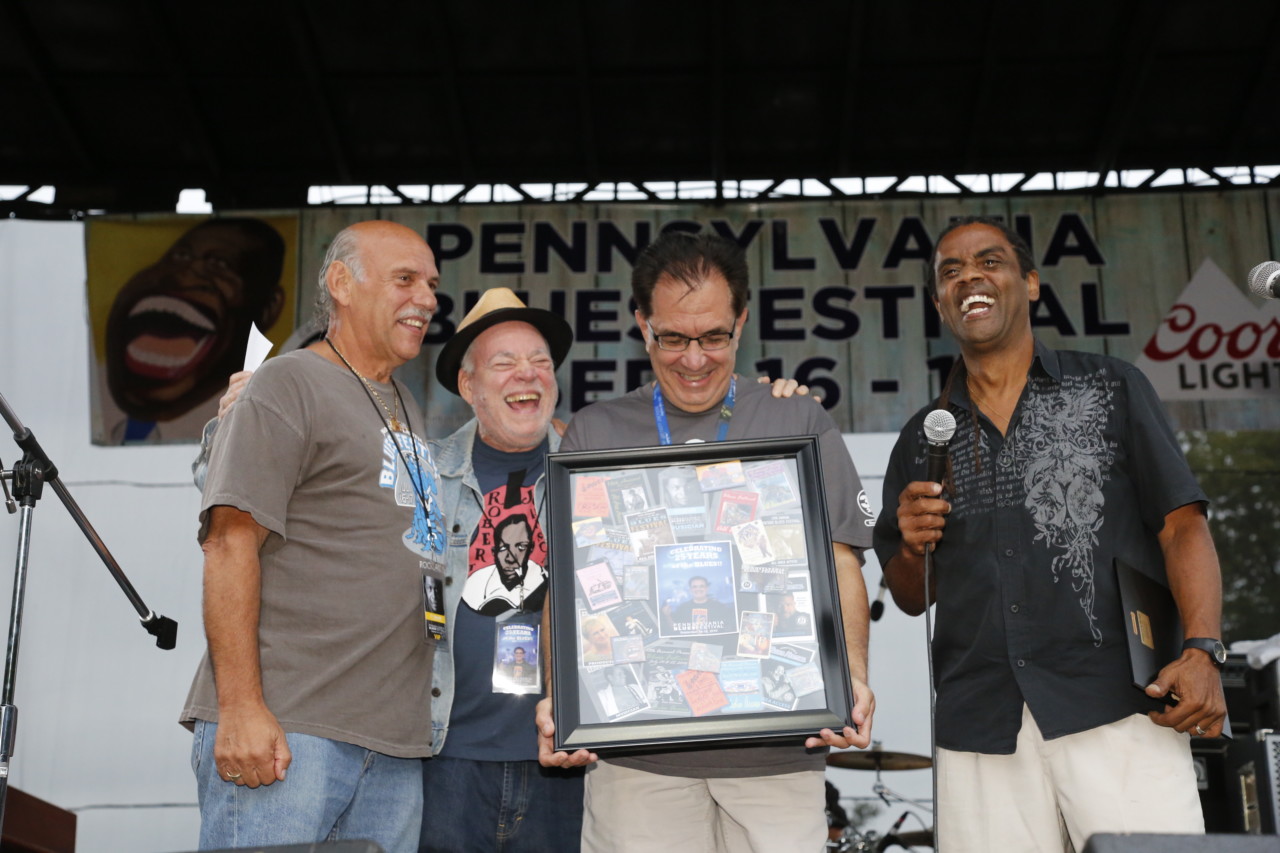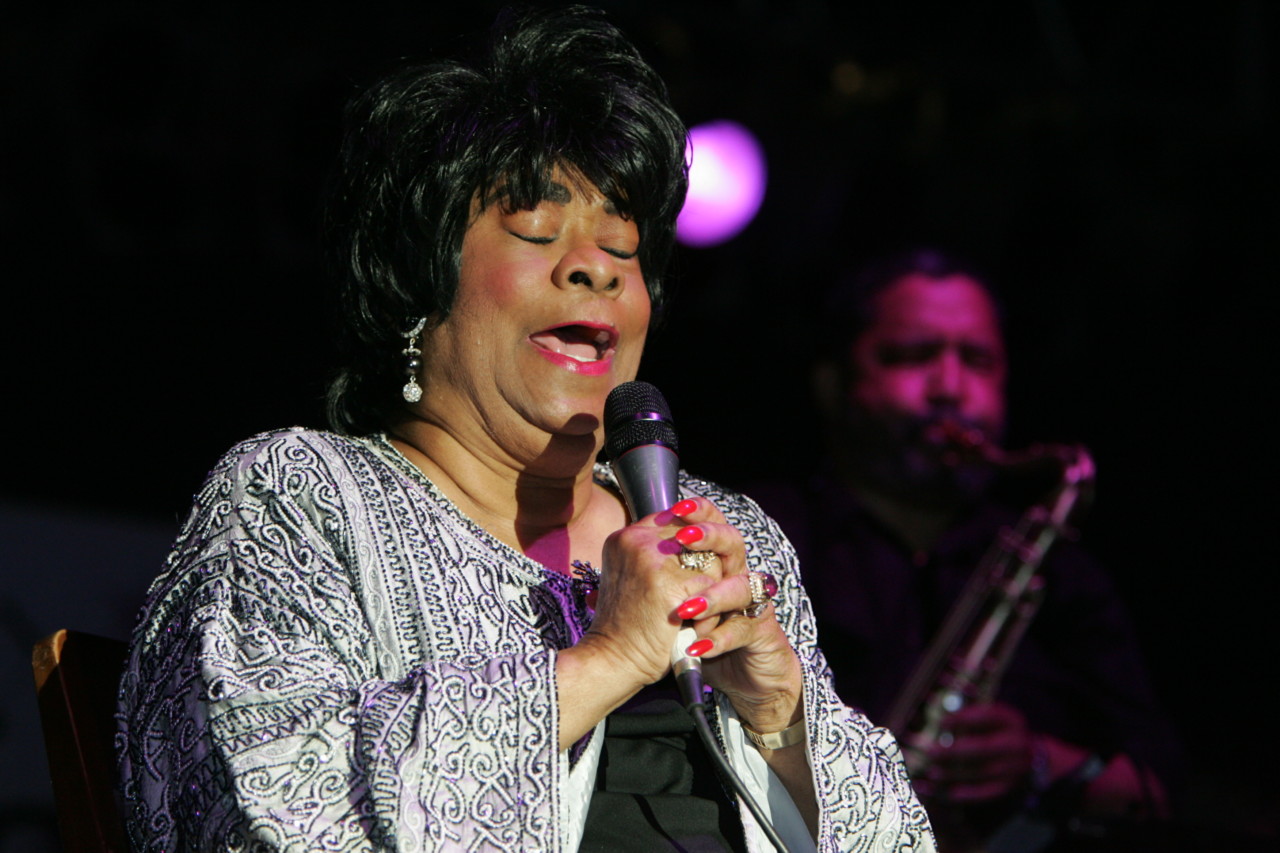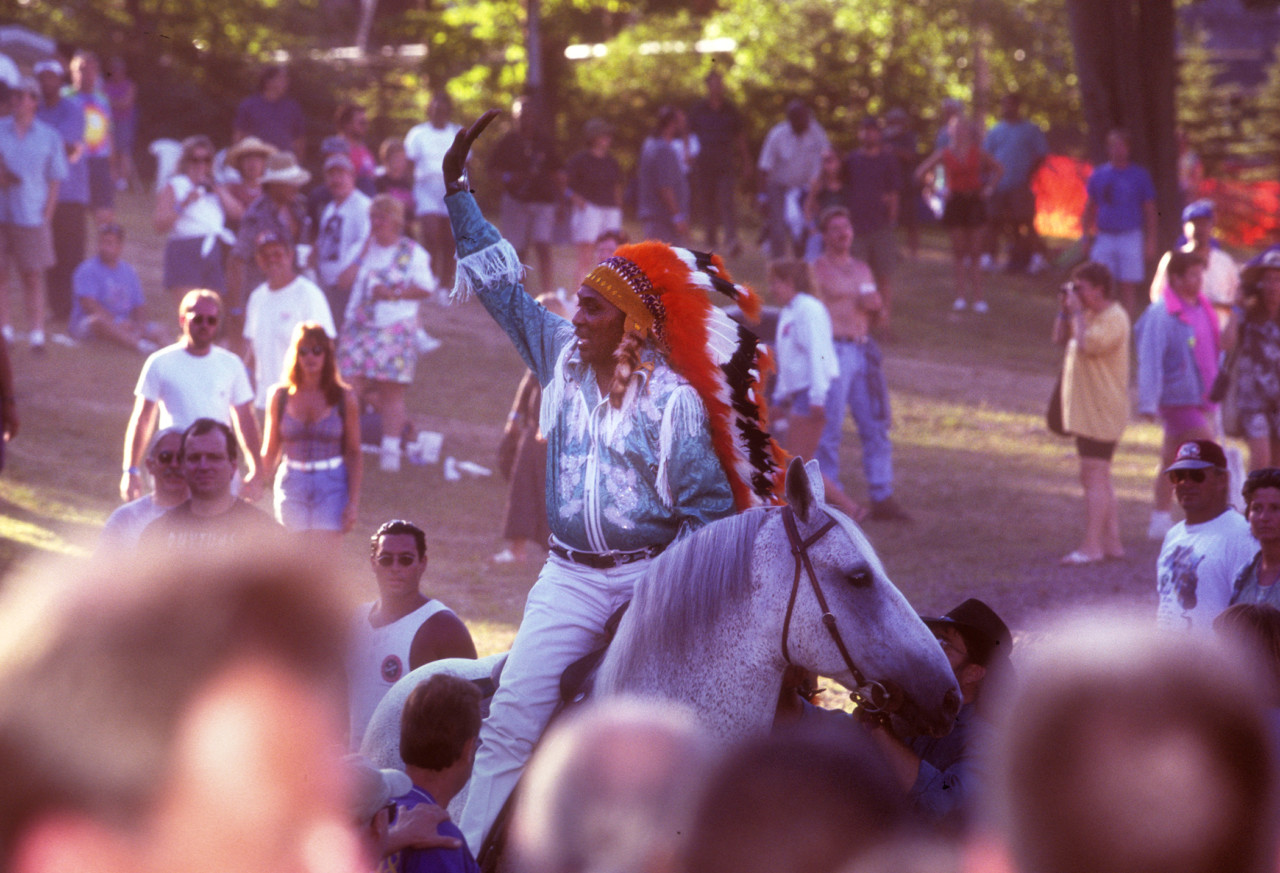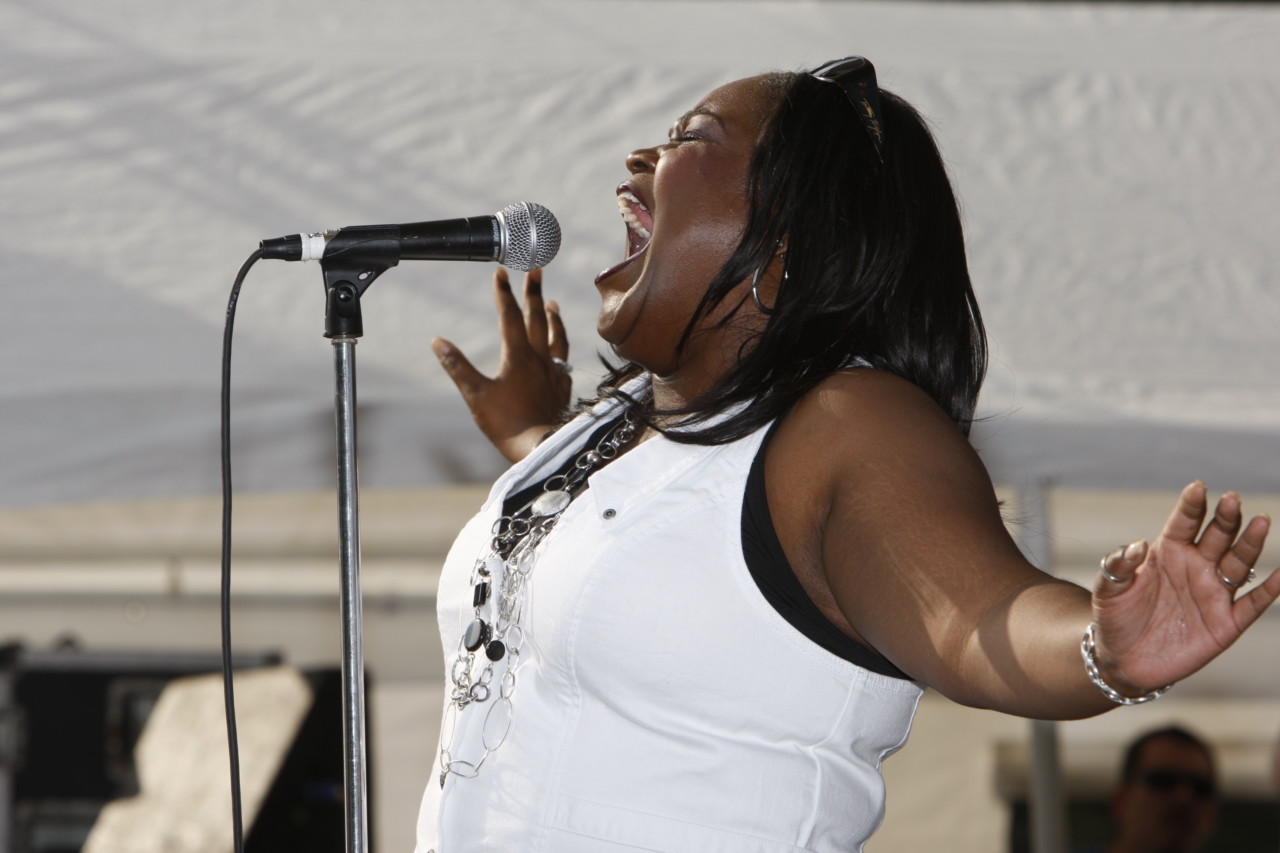
By Jim Hynes
No music is more American than the blues. Everything else stems from that. And, it’s fair to say you are one of the biggest preservers of real deal blues based on the way you program your festivals. We’ll talk about that and your career in the music business where you’ve produced over 150 music festivals and programmed well over 2,000 national and international acts.
Elmore Magazine: How did you get your start promoting music events?
Michael Cloeren: In October of 1990, I took a position as Group Sales Manager at Big Boulder Ski Area. The facility had the perfect infrastructure to present a national event. I knew I had the passion and background knowledge. The facility was already hosting events like Octoberfest and Irish Festivals, and I got involved with the events staffs. I proposed the first Pocono Blues Festival in mid-March, and we held the first one on 7/31-8/1, ’92.
EM: What were some of the biggest challenges for the first Pocono Blues Festival? Who was on the first bill?
MC: The challenges were educating the staff about the differences in clientele between winter events and summer events, but we had a great staff and they came up to speed quickly. The line-up for the first one was: Son Seals, Lonnie Brooks, Willie Kent and the Gents with Bonnie Lee, Kenny Neal, Big Jack Johnson, Bobby Radcliffe, Mojo Buford, Johnny ‘Clyde’ Copeland and Clarence Spady.
EM: Let’s step back for a minute. How did you get into the blues?
MC: Like most of the people my age, it was the British Invasion. On March 30th of ’75, I went to see Eric Clapton at the Spectrum in Philly. Muddy Waters and his band opened for Clapton, and that changed my life. Fortunately, during that period, Philly had a good blues scene, and I recall seeing John Lee Hooker, Koko Taylor, Albert King, John Mayall and others.
EM: Like me, you had a blues radio show. What did you like about it and do think about going back to radio?
MC: I liked that I had total control of the programming and the spontaneity. I also did a number of pre-recorded interviews, and especially enjoyed those with Mavis Staples, Bettye LaVette, Mighty Sam McClain, Shemekia Copeland and Wallace Coleman. If I had the time and it were the right fit, I’d do it again.

EM: I know you favor the more traditional and contemporary blues artists rather than the commercial ones. You’ve stamped your brand in a sense, as your philosophy of putting a festival together is different than most. Tell us about your approach.
MC: I tend to think of myself as a European promoter from the ‘70s and ‘80s. Very few producers in the U.S. program like I do. Generally, I know the artists I am going to book before I book them. Headliners are important, but the key is to make the festival important for each performer. Here are a few of the constructs I use for the blues festival: 1/3 have played the festival before, 1/3 have never played and 1/3 are artists that rarely come east of the Mississippi. They also need to have a current CD– within the last 18 months. I’ve always produced outdoor festivals at ski areas, because they not only offer natural amphitheaters for the fans, but put the artist in a laidback situation. Many of them live in rural areas or go to a rural area to write. So, a ski area makes them that much more comfortable. In terms of traditional blues artists, I would say it this way: I support blues. The artists need to live it, breathe and die with it. I am not about the “artist of the day” or the child prodigy. Another aspect that’s important to me is how they dress. It’s important how they present themselves on stage. I’m not interested in someone who shows up on stage just having walked out of the touring van, wearing the clothes from the night before.
EM: Tell us about your staff at Michael Cloeren Productions? It must take a number of people to produce a festival.
MC: I’m blessed to work with so many people that have a great background in music. Ginny Buckley, my publicist, has worked with Bill Graham, Michael Jackson, Little Steven and Clarence Clemons. Ginny is just wonderful behind the scenes. Dale Vanderbogart, my tent stage manager, has excellent customer service skills. William “BJ” Jay and his wife, Robyn Madara, bring stage management and hospitality skills. Taylor Pathroff, my production assistant, is very detailed. Doug Waltner has been my programming partner for 25 years. I also call on a number of stage announcers, among them Bill Wax, Scott Acton, Jonny Meister, Chef Jimi, Matt Perry, Robert Jr. and Shirley Mae– and you– to help out.
EM: Looking back over 25 years, what has changed the most in the industry? What are today’s challenges compared to those years ago?
MC: The biggest factor is health issues for both the performers and the fans. We have to re-educate a new group of fans now, because I intend to stay with the way I program. There are more events now than when I started. There’s more competition, which is good, because it means that you have to step up your game. Also, there are far fewer blues clubs than when I started, so you’re not able to disperse travel costs across multiple dates for some of the artists, which, in turn translates to paying them more.
EM: What have been, say, your three most memorable moments in shows you’ve promoted?
MC: Ruth Brown in 2005 because I had booked her in 2000, but she had a stroke. It took her 5 years to regain her motor skills. When she walked off the stage to the applause of the fans, she said to me, “Michael, I lost all my motor skills. I couldn’t walk or sing, but I’d do it all over again just to hear those fans.” Another was Eddie “The Chief” Clearwater in 1998. He asked me to rent him a horse, and not knowing where this was going, I went along with it– only to see him make his entrance aboard a white stallion in full Indian headdress from head to toe. And, in 1993, Roosevelt “Booba” Barnes stepped out of a beat up 15 passenger van, and it’s 100 degrees outside. He turned to me and said, “Michael – Am I the headliner? Don’t answer that. You know when Roosevelt “Booba” Barnes hits the stage, I’m always the headliner.” I love that line. Another amazing performance was when we had Alexis P. Suter and the Brooklyn Interdenominational Choir at 40 strong in 2013. The rousing passion of their gospel music may have been the best single act I ever programmed.

EM: What have been your most memorable musical moments outside of things you’ve promoted or been involved with?
MC: They would be the aforementioned Muddy Waters, Albert King, my favorite blues guitarist at the Chestnut Cabaret in Philly and Rufus Thomas, who really showed me what a blues entertainer could do.
EM: What are projects have you done, aside from the blues festivals? I know you’ve put together some roots festivals and have hosted some.
MC: From ’96 to 2002, at Big Boulder, we had Gathering on the Mountain, which we started in early August the year after Jerry Garcia died. It was the precursor to events like Gathering of the Vibes, Bonnaroo, Mountain Jam and others that have happened since. We had artists like the Band, New Riders of the Purple Sage, Jorma– with and without Hot Tuna. We also had the Classic Rock Bikers Rally from ‘99-2002, with artists like Charlie Daniels, Foghat, Leon Russell and others. So, we had three national festivals in the summer at Big Boulder. [Interviewer’s Note: Michael has also produced festivals in Vermont, and has been an emcee at multiple festivals.]
EM: You were the Operations director for the Philadelphia Folk Festival for four years. What was that experience like?
MC: It is the largest continuous festival in North America. As Operations Director, I had the biggest budget I’ve ever had by far. Yet, it was amazing to see how a non-profit organization can make the festival be profitable and still be very organic. I point to the 2,500 volunteers who do such an amazing job.
EM: Given your current job as Venue Manager at Penn’s Peak, music is both a vocation and avocation. Tell us about Penn’s Peak.
MC: It is a world class venue – a multi-purpose facility. We can have concerts that fill an 1,800 capacity room, from Buddy Guy to Umphreys McGee, to weddings of 200 or so. The future is bright. We do 80 concerts, 30 senior citizen luncheons, summer deck parties and 30 weddings; altogether about 200 events a year. For more information, visit www.pennspeak.com.

EM: You’ve seen this area really grow musically – the number of venues in the Lehigh Valley and surrounding areas just in the last five-eight years. Why do you think that is? I actually think that by bringing blues to this area, you’ve had a bigger role in this that you probably realize. I’ve had several local venue owners credit you.
MC: Competition is good. Everybody has to work creatively to step up their game. When I look at what they’re doing in Bethlehem, Reading and Wilkes-Barre, it has certainly changed, but I think there’s enough for everybody. Roots music is bringing in a younger demographic, and we know that many artists are touring more.
EM: You’ve been exposed in a serious way to other genres, giving you very good familiarity with roots, country and rock too. What has impressed you?
MC: This experience at Penn’s Peak has given a perspective I’ve never had. You actually become a fan, for day of, not only the artist, but the entire crew. It’s amazing, these 16 hour days loading in and out, with a touring van and three semis of equipment for artists like Dwight Yoakam, Garry Allan and Josh Turner. But to see how professional they and their staffs are is the real takeaway for me.
EM: In fact, I think you were in Nashville just last week for the first time. What kinds of observations did you take away from those few days?
MC: I was there for a four day IEBA conference from October 8 -12th. So, I was busy during the days with panels and so forth, but I did get a sense for how fascinating Nashville is. Wow – look at the musical talent, and you can understand why so many musicians are not only choosing to record there but moving there too. I got to the Ryman and took the tour, I saw the Mike Henderson Band at the Bluebird, got to Bourbon Street Blues and Boogie, and saw Steve Poltz at the City Winery. I was impressed with the number of young people I saw on Lower Broad on a Tuesday night, where they had an outdoor stage to commemorate Tootsie’s Orchid Lounge’s anniversary. I definitely want to go back.
EM: Specifically, how do you feel about the future of the blues? There seem to be a number of good young artists that can keep this flame burning. It will never die, right?
MC: It will never die, but it will become different. You know how these younger artists are incorporating other forms into the blues? Artists like Selwyn Birchwood, Jarekus Singleton, Vanessa Collier, Mikey Jr., Shawn Holt… and I could go on… but they are encouraging. As long as they have real respect for the blues traditions, we’ll be fine.
EM: The Pennsylvania Blues Festival is scheduled again for September next year at Split Rock in Lake Harmony, right? And tell us about your project for the spring – Bluzin’ in the Catskills.
MC: Yes, we like having the blues festival at Split Rock in September. The Catskills event is something I’ve always wanted to do – one price that is all inclusive for meals, lodging and entertainment – essentially a cruise on land. I went to the venue, Villa Roma, three times to assure myself they had terrific customer service. I like having this event to be not too big or too small – about 400 -500 people.
Bluzin’ in the Catskills is scheduled for March 24-26th, 2017, and will feature artists like Bobby Rush, Shemekia Copeland, Johnny Rawls, John Primer and many more. For more information, go to www.michaelcloerenproductions.com and www.villaroma.com.







For those who may not know, the caption in the first picture should state that Paul Benjamin is on the far left and Bill Wax is second from left.
Thanks for catching that, Henry! We’re fixing it now.